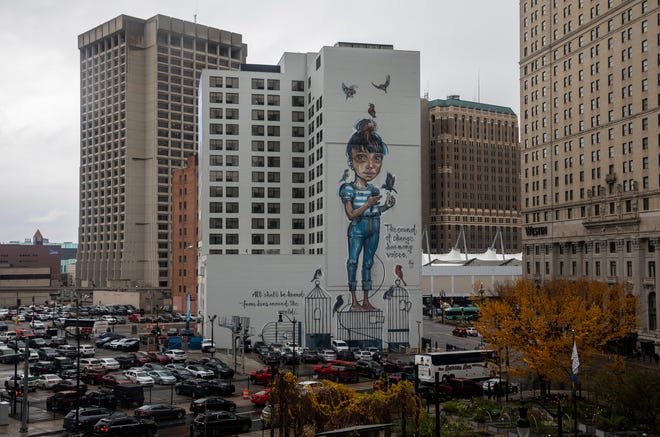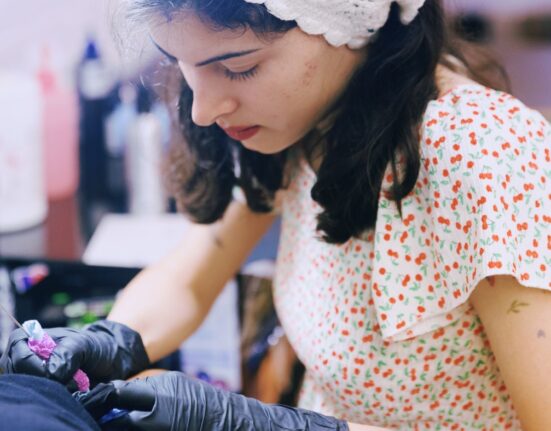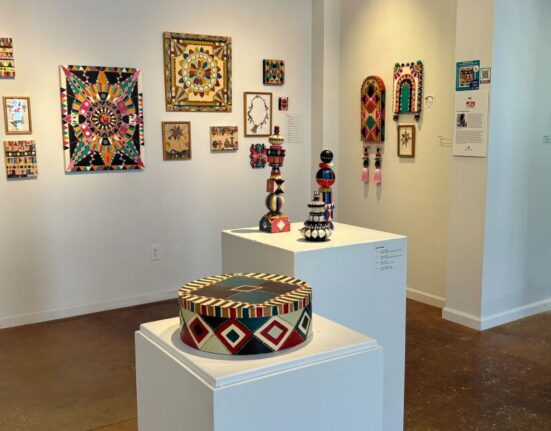They came, seemingly, out of nowhere.
In late October, a new batch of large murals appeared on buildings around downtown Detroit, but no one seemed to know when they were painted or who was responsible for them. Local artists quickly came to the realization that none of these works were by Detroiters.
And that’s when the trouble started.

It turns out that the murals — seven in all — were part of an initiative titled “Be the Change,” a partnership between Detroit’s Planning and Development Department, the Downtown Detroit Partnership and Street Art for Mankind (SAM), which brought artists from around the world to create the massive works.
Detroit artists and art supporters took to social media to air their frustrations, with many calling out Mayor Mike Duggan as well as Rochelle Riley, who leads the city’s Office of Arts, Culture & Entrepreneurship (ACE).
Popular Detroit artist Sydney G. James, co-founder of the BLKOUT Walls street mural festival, was one of those leading the charge, perturbed by the fact that local creators were never offered an opportunity to apply or compete for the prominent spaces.
“The company is named Street Art for Mankind,” said James. “They go to big cities and put up very large murals for very, very cheap. They’re paid under standard rates, so that’s one thing. But also, the other thing is, these big, commercial walls are in the city of Detroit. Why aren’t any Detroit artists present? Why aren’t we a part of the conversation, why wasn’t there a bidding process? It’s a community project — we’re talking about thousands of square feet. That’s a job, and should treat it as such, and honestly. It was city-sponsored, and there was literally nothing about it until the (murals) were already up.”
“None of these artists were from the United States,” she said. “And only one of them was Black. All of these artists were working for about $1 per square foot, maybe $2. It’s a multi-layered issue.”

The Free Press reached out to Rochelle Riley, who referred contact to Conrad Mallett, corporation counsel for the city. Mallett says the “Be the Change” project was not passed through proper channels and that the matter is being handled within City Hall.
“We are all interested in the continued beautification of the city of Detroit,” Mallett said. “Where things went sideways was when our Director of Planning (and Development) Antoine Bryant, new to the city of Detroit, failed to recognize that even when someone is offering you what seems to be like a tremendous, wonderful opportunity, the process we use within the city of Detroit must be followed. If we are going to make any kind of purchase — not just buying cars, or buying equipment, or buying services — if we’re going to buy anything, the contract must be approved by the Detroit City Council, and the purchase must be done through the Office of Purchasing.
“So, in this instance, even if there was a desire for sole source — and our rules do allow for sole source — that decision has to be affirmed by the Detroit City Council. When we don’t follow our own processes, which are in place for a variety of reasons, I think what you get is what you have right now. There is confusion, there are hurt feelings, and — all of which, in my judgment — could have been avoided if we had followed our own rules.”
The Free Press contacted Bryant for comment, but he did not respond.
More:Detroit names 25 artists to create 23 new murals across city
“Be the Change” is the latest in a creative storm of effort to make Detroit tops in the nation when it comes to murals. The city was ranked fifth earlier this year in USA Today’s Best Cities for Street Art list. Last summer, the city partnered with the creators of street art app CANVS to begin a tracking database for all of the city’s murals.
ACE was initially involved with bringing the two-phase project to town, along with the city’s planning department and the Downtown Detroit Partnership, with Riley and ACE insisting on the involvement of Detroit artists, but ACE’s involvement ended when Bryant pushed the contract through on his own. Phase two was to involve Detroit artists; Mallett said that after recent events, however, the second phase in 2024 may not even happen.
“Just for the record,” Mallett said, “I’m not even sure there’s going to be a second phase. What we will have to do is reconstruct our relationship with SAM; we will have to figure out a forward process that fits in the framework of the city of Detroit ordinances. We’ve got to make sure that there’s going to be community input. So, if there is a second phase, it will be managed very differently than what has occurred to this point.”
In the meantime, James said she’s working with lawyers on a proposal for City Council that will avoid situations like this in the future, including the matter of undercutting standard pay scale for muralists.
“What needs to happen,” she said, “is a system needs to be put in place with protocols, a code of conduct standard, a selection standard. There needs to be a creative advisory board. It’s important, especially for large projects. We’re not talking about 500 square feet here, we’re not talking about 500, or even 1,000, we’re talking about 7,000 square fee-plus. What happened here isn’t good for the goose; it shouldn’t be good enough for the gander.”
Contact Free Press arts and culture reporter Duante Beddingfield at dbeddingfield@freepress.com.





